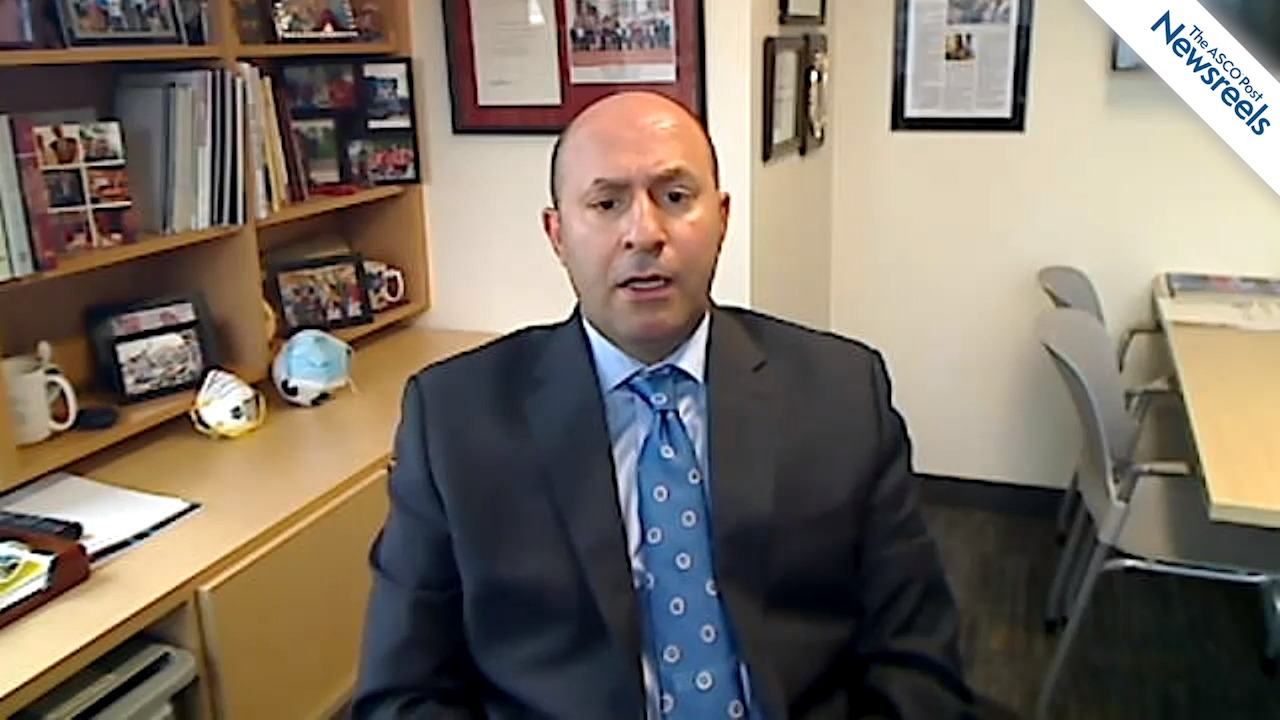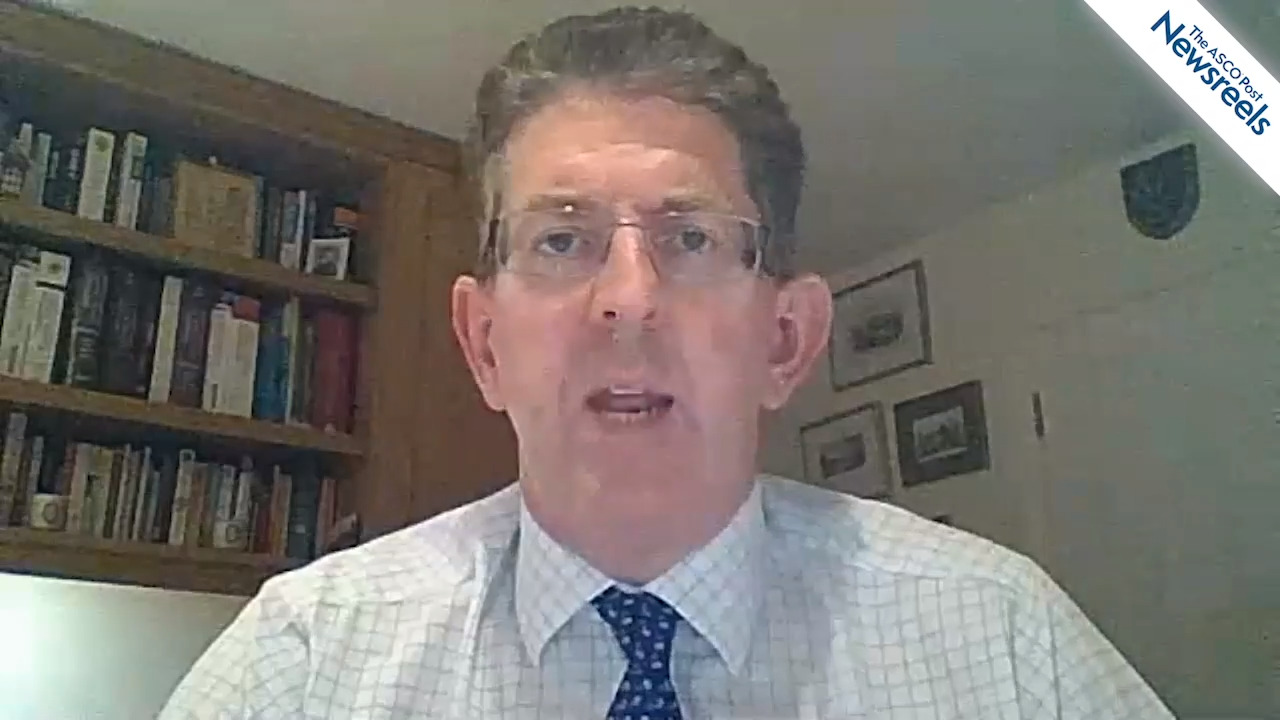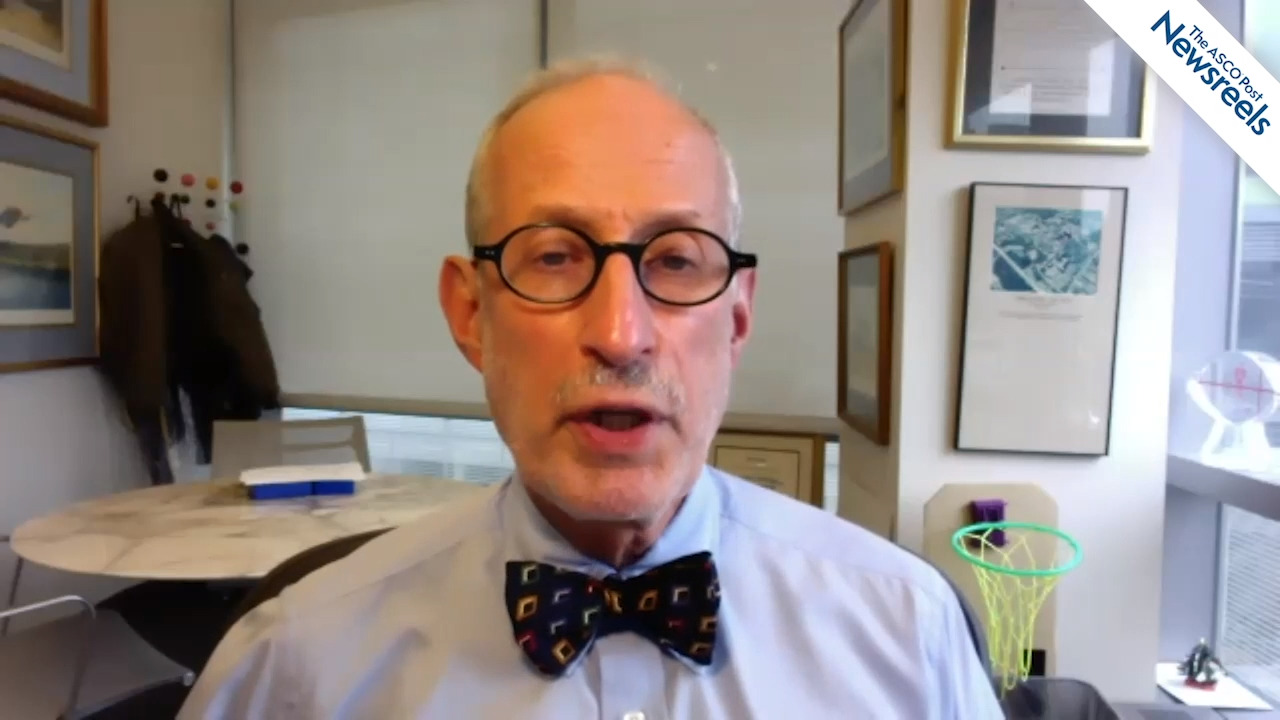Thierry Andre, MD, on Colorectal Cancer: Health-Related Quality of Life With Pembrolizumab vs Chemotherapy
ESMO Virtual Congress 2020
Thierry Andre, MD, of Hôpital Saint-Antoine, discusses phase III KEYNOTE-177 findings on the reduced risk of disease progression or death in patients receiving pembrolizumab monotherapy as a first-line treatment of microsatellite instability–high and/or mismatch repair–deficient metastatic colorectal cancer (Abstract 396O).
The ASCO Post Staff
Toni K. Choueiri, MD, of Dana-Farber Cancer Institute, discusses the first results from the phase III CheckMate 9ER trial, which suggested the combination of nivolumab and cabozantinib is safe. It showed activity in progression-free and overall survival, as well as in overall response rates and may have a place in treating patients with metastatic renal cell carcinoma (Abstract 696O_PR).
The ASCO Post Staff
Stephen R.D. Johnston, MD, PhD, of The Royal Marsden NHS Foundation Trust, discusses phase III study findings from the global monarchE trial, which showed that when added to standard adjuvant endocrine therapy, abemaciclib is the first CDK4/6 inhibitor to improve invasive disease–free survival in hormone receptor–positive high-risk early breast cancer (Abstract LBA5_PR).
Read more on the monarchE trial in the Journal of Clinical Oncology.
The ASCO Post Staff
Aditya Bardia, MD, MPH, of Massachusetts General Hospital Cancer Center, discusses results from the phase III ASCENT trial, which showed the antibody-drug conjugate sacituzumab govitecan-hziy improved progression-free and overall survival more than standard single-agent chemotherapy in patients with previously treated metastatic triple-negative breast cancer (Abstract LBA17).
The ASCO Post Staff
Erika P. Hamilton, MD, of Sarah Cannon Research Institute, discusses results of the nextMONARCH study, which indicated that combining abemaciclib with tamoxifen improved overall survival. Dr. Hamilton also details adverse events in different arms of the study (Abstract 273O).
The ASCO Post Staff
Jeffrey S. Weber, MD, PhD, of the Perlmutter Cancer Center, NYU Langone, discusses the 4-year recurrence-free and overall survival results from the CheckMate 238 study, which showed adjuvant nivolumab continues to be an effective treatment, vs the comparator ipilimumab, for patients with resected stage III/IV melanoma (Abstract 1076O).





